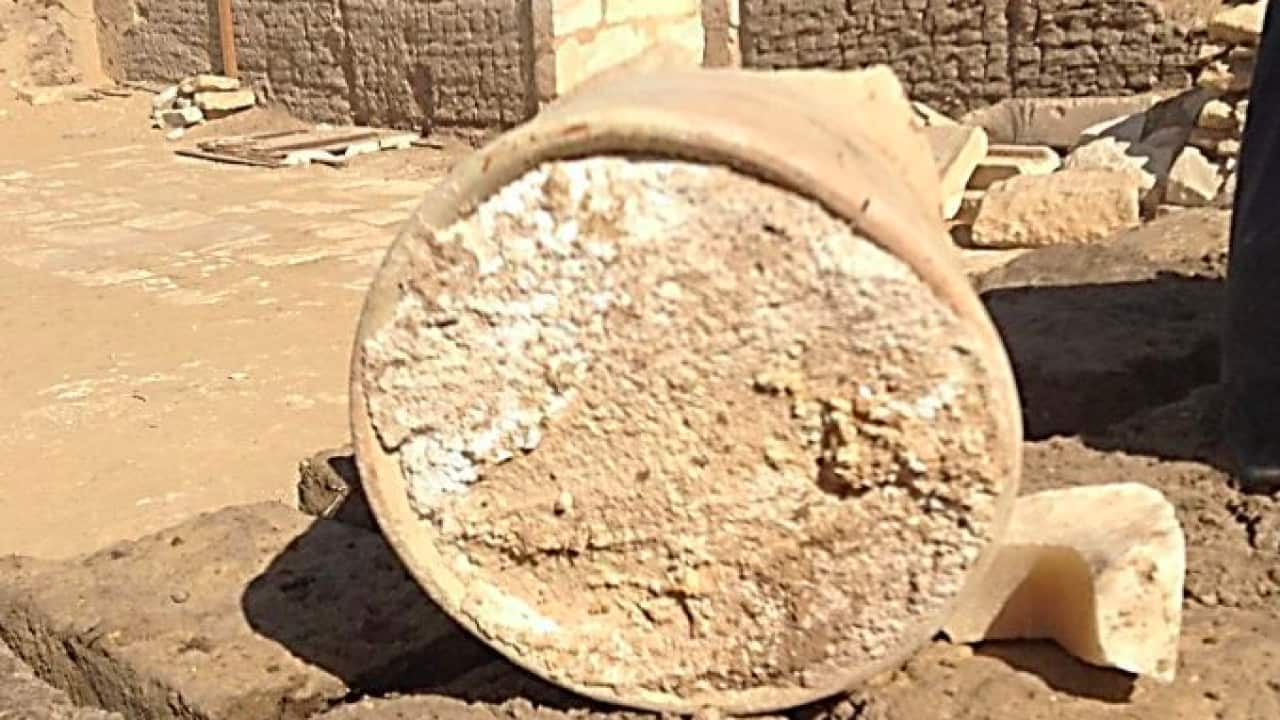In the tomb of Ptahmes, a senior Egyptian official of the thirteenth century, the team discovered several broken pots, in one of which was a "whitish solidified mass".
Archaeologists believed in food, but were surprised to discover that it was cheese!
In fact, a study identified cheese dating back 3,200 years.
The discovery is important because there has been no previous evidence of the production of ancient Egyptian cheese, said the report's authors, published in the journal .
"The material analysed is probably the oldest solid archaeological residue of cheese ever found," said Dr. Enrico Greco, of the University of Catania, who worked with colleagues at Cairo University.
"We know it was mostly sheep and goat's milk, but for me, it's very difficult to imagine a specific flavor." The researchers also found traces of a bacterium that causes brucellosis, a life-threatening disease that animals can transfer to humans through unpasteurised dairy products.
The researchers also found traces of a bacterium that causes brucellosis, a life-threatening disease that animals can transfer to humans through unpasteurised dairy products.

Cheese from Ancient Egypt (University of Catania and Cairo University) Source: University of Catania and Cairo University
A disease that is still relevant in Australia; last year, it contaminated pigs to humans and dogs, especially in Queensland and New South Wales.
Although the results showed that this cheese was contaminated, people at the time used it as a medicine, according to Dr. Greco.
In any case, we may never know what flavors had cheese at that time, archaeologists and experts have not had the desire to taste it.
